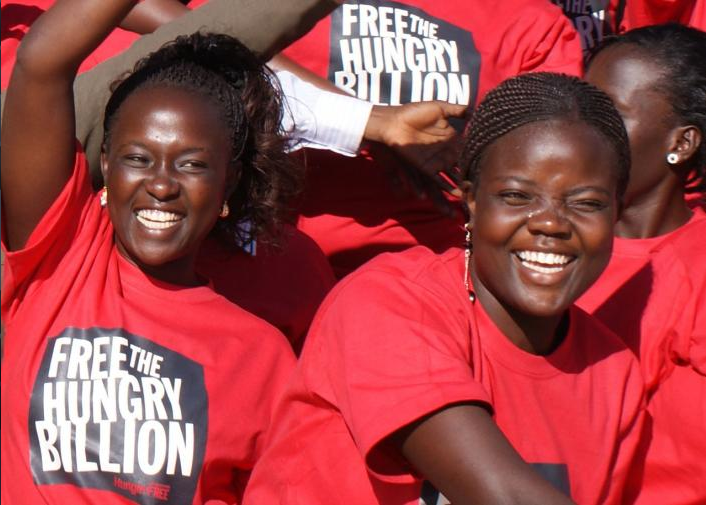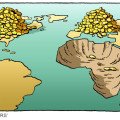All Ice Cube puns aside, October 15th and 16th 2011 will certainly go down as the days the voices of the people were amplified.
As I work in development, I’ve been really engaged with World Food Day this year. Even though it isn’t a big deal in the UK, it’s pretty significant in other countries. As it happened this year it coincided with the mass Occupy mobilisations (OccupyLSX / OccupyWallStreet), which while featuring more in the Western media headlines, actually dovetails very well with most of the key issues people are thinking about for World Food Day.
The Occupy movement is broadly focused on the inequalities apparent in national societies, and that’s what has inspired the global movement. Essentially it is a call for a global regime change.
What are the main problems needing to be addressed to resolve world food / hunger issues? Well, probably quite unsurprisingly, they’re much same. ‘The few’ have a horrifically disproportionate amount of the wealth, compared to ‘the many’. Specifically around why we have the situation where there is enough food in the world to feed everyone (stat from memory), and yet there are famines going on right now with people starving to death for lack of food. At the other end of the spectrum ‘the few’ are speculating on the prices of food to make a few bucks for that third villa in blah blah blah.
These are truly historic issues that have plagued societies for centuries, however societies only function while these disparities are kept within acceptable parameters (specifically the gap between rich & poor). While previously things like Esperanto were created with an aim to try and unite ‘the many’, now we have the internet.
With that in mind, the more these global movements spring up and cross-pollinate, the better in my book, but there comes a point where they need to coalesce and unite around common asks. There is a vast appetite for making the world a fairer, more balanced place, but it has to be spelled out exactly how that will happen in different countries.
Working with the wonderful ActionAid crew recently, the Food Rights team and campaigners have identified that farmers on small plots of land, are actually producing almost half of the world’s food currently, and up to 80% of them are women. Yet when rich world leaders are talking about solutions, they’re talking about big business and industrial farming. Now why would that be?
The ActionAid team wanted to remind world leaders and national governments of what the real solution to hunger is, so we knocked this up. Hope you like it!
Some further reading:








“While previously things like Esperanto were created with an aim to try and unite ‘the many’, now we have the internet.” Hmmm … The internet is only of use if we have a common language – and if we have the internet. A couple of years ago I was in Cameroon where access to the internet is constrained.
Esperanto works! I
learned it in my late teens, and I’ve used it in speech and writing in a dozen
countries – including Cameroon – over recent years. As a planned auxiliary language, it is easier to
learn and use than national tongues. It is a relativey young language, of course, with a relatively young speaker population.
Wow, great comment, thanks! I also tried learning Esperanto, but didn’t get beyond the basics. Loved the regularity of syntax and the romantic language roots though.
Access to the web is a constraint, no question. But the speed at which that is expanding – fibre optics into Africa for instance, and the technology that is breaking down barriers between major European languages (commonly spoken elsewhere like Cameroon’s French and English to an extent) I find very exciting. I love language, and love to learn new languages, but the idea that we’re getting closer to technology that would allow realtime translation to get around linguistic barriers I find amazing!
But as I say, the conception of Esperanto was brilliant and I think everyone should become familiar with it, even if it turns out to be only an academic exercise, for it’s inspirational motivation and construction alone it’s worth it.
Really interested to hear about your experiences in Cameroon – thanks for comment 🙂